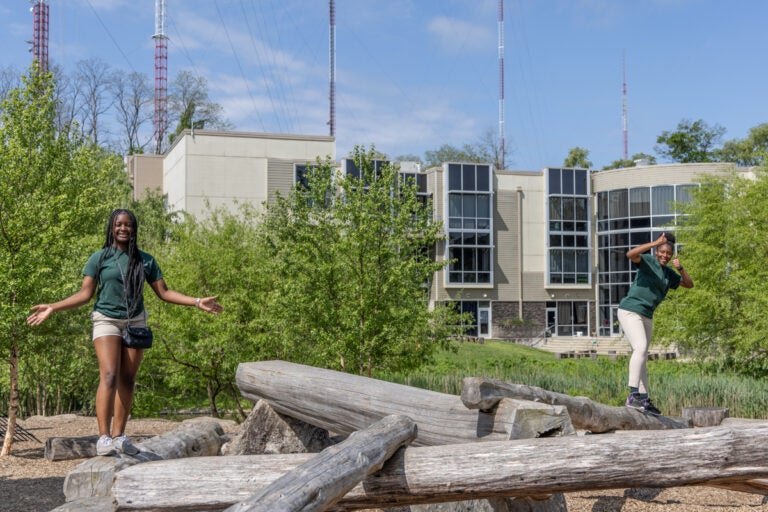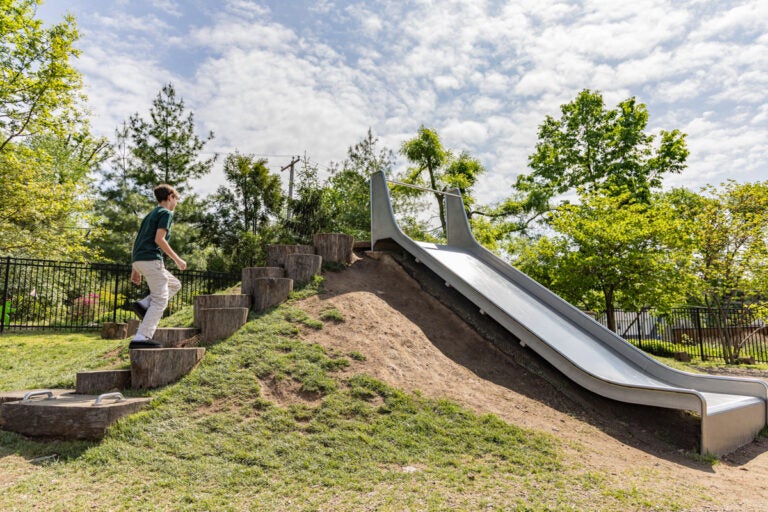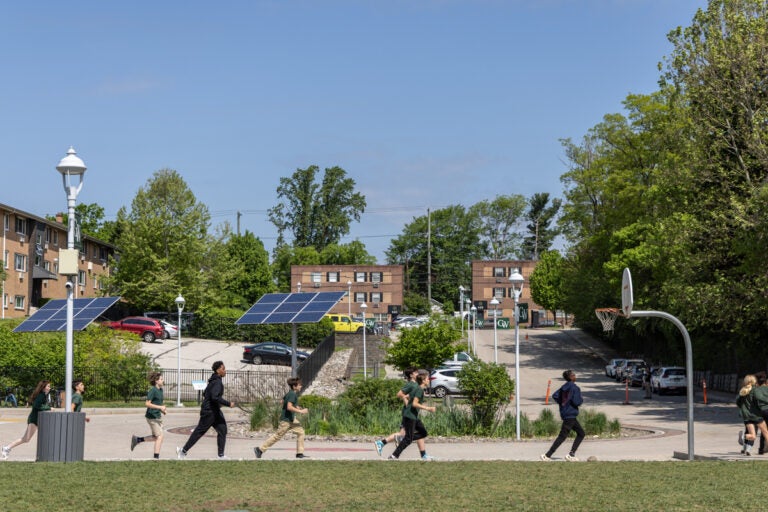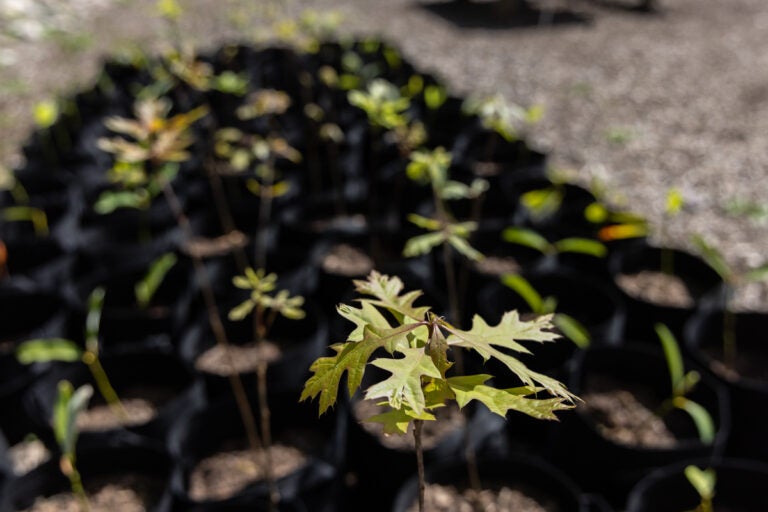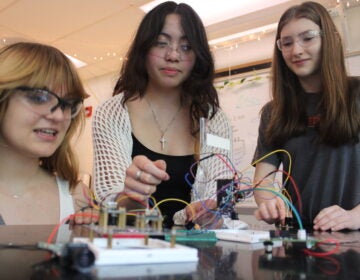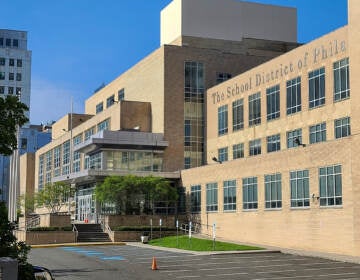From lunch tables to gardens: In Roxborough, Green Woods students are turning food waste into compost
Philadelphia students are learning how to reduce the impacts of climate change and protect the watershed — and earning a “green ribbon” in the process.
Listen 1:13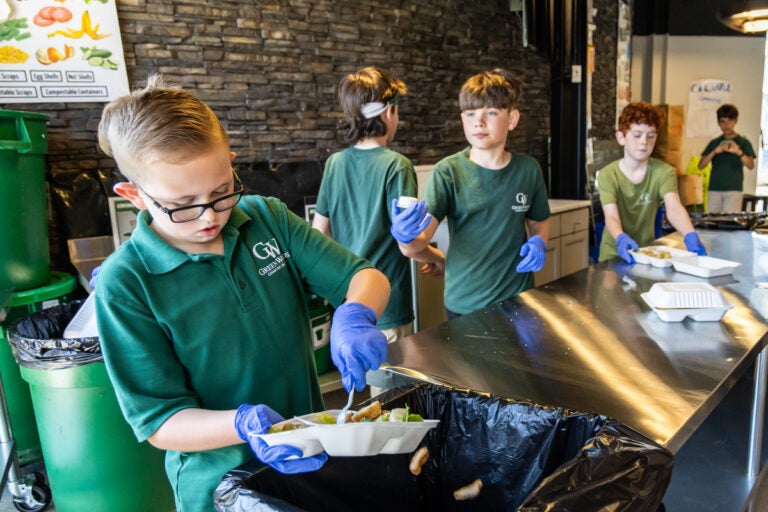
Green Woods Charter School students organize remnants of their classmates’ lunches into trash, compost and recycling. (Kimberly Paynter/WHYY)
From Philly and the Pa. suburbs to South Jersey and Delaware, what would you like WHYY News to cover? Let us know!
Inside the cafeteria at Green Woods Charter School, students chat loudly above their classmates’ voices as they finish a lunch of crispy chicken salad and fruit.
A school educator blows her whistle rhythmically, and in call-and-response fashion, the kids clap in time to the pulse of the piercing sound.
“If anyone has trash, bring it up now,” the educator shouts.
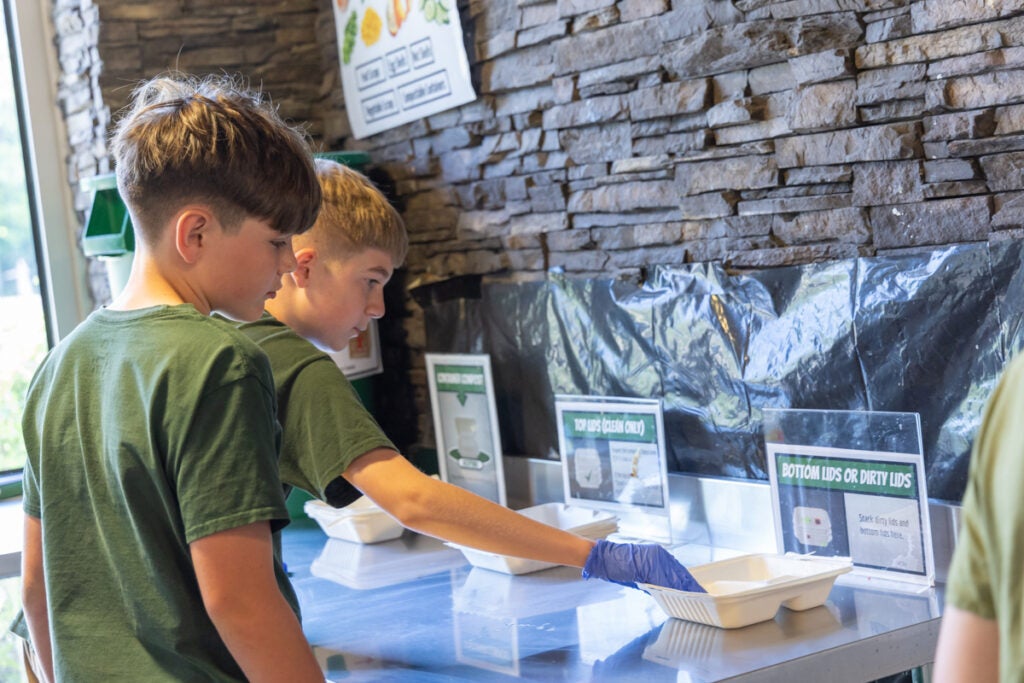
The kids line up as their fellow classmates separate the lunch waste into trash, recycling and composting bins.
The students will later use worms to turn their biodegradable food containers and leftover apples and banana peels into compost for their parents’ gardens.
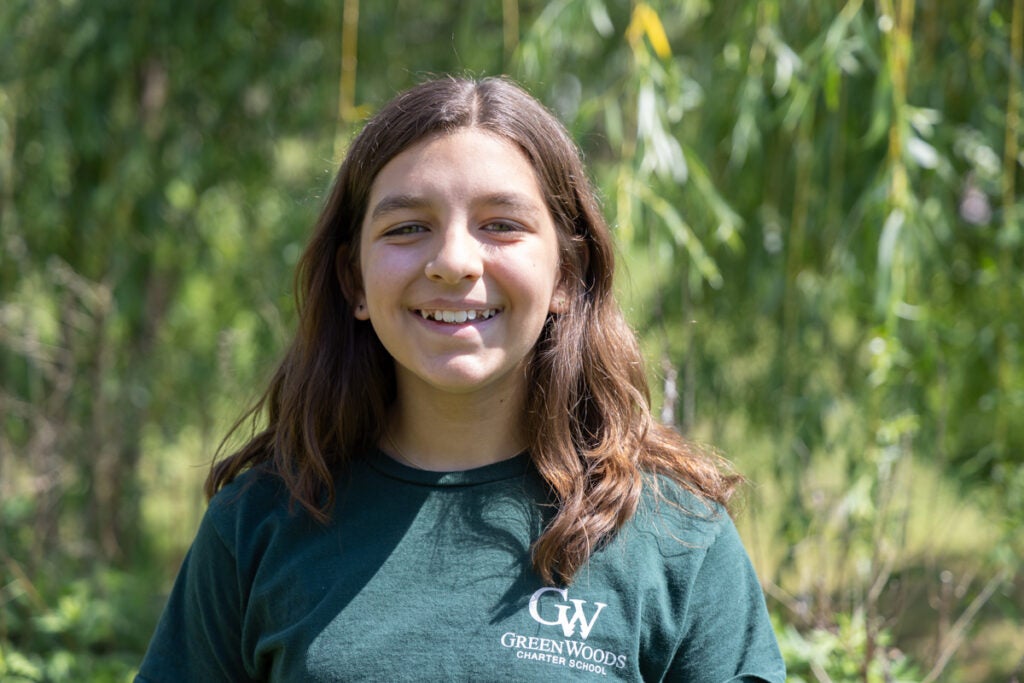
“It was a little gross,” said Mia Hoffmann, a 5th grader, recalling the first time she composted.
Now, the 11-year-old appreciates how the worms’ work helps the environment.
“It’s really nice to go out there and make the compost now, because I know we’re going to grow better plants,” Hoffman said.
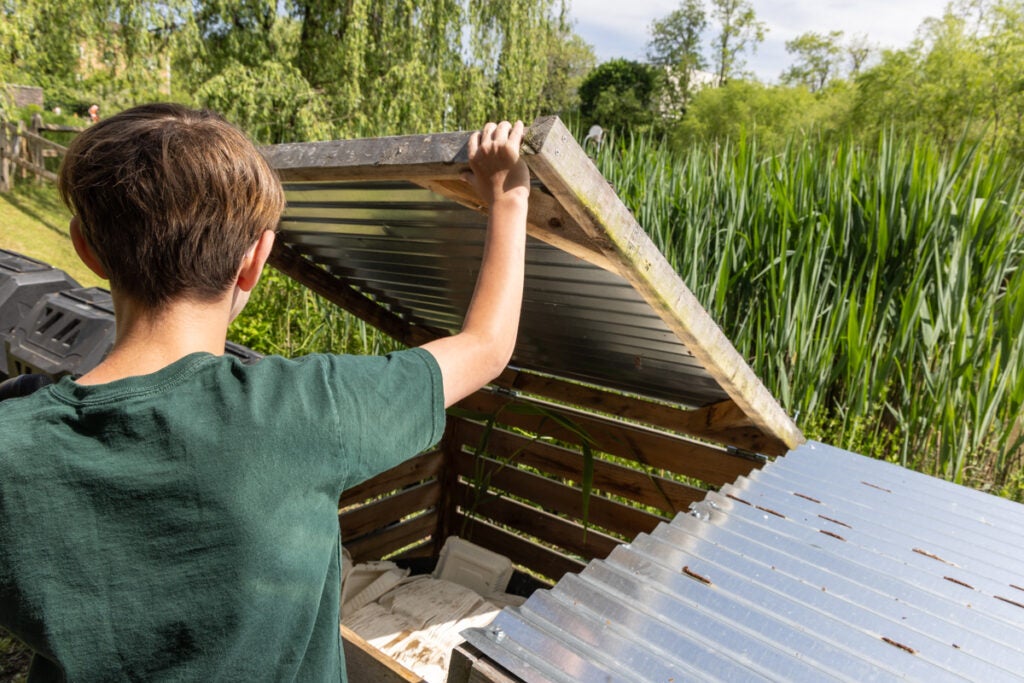
The Roxborough charter school is one of three Pennsylvania schools that received a green ribbon award at the end of April. The U.S. Department of Education one-time honor recognizes schools that save energy, have sustainable learning spaces and offer environmental education.
“I just got full of joy, and really appreciative of the hard work we’ve been doing at our school, and we really deserved it,” said Chrisette King, an 8th-grade student.
Green Woods, which serves students from kindergarten through 8th grade, provides Green STEM education.
The school was founded by five moms 21 years ago. What began as 100 students taking classes in the woods at the Schuylkill Center for Environmental Education now boasts a modern eco-friendly facility with more than 700 students.
The students take science classes every day and participate in hands-on environmental projects that teach them how to reduce the impacts of climate change, improve water quality and protect endangered species.
“I don’t think it necessarily means all of our students need to become … environmental science majors,” said the school’s CEO and Principal Debi Durso.
“I have a degree in English, but what I’ve learned about recycling, about the impact of waste, about greenhouse gasses — all of those things now impact my daily life. I would hope students would leave here … become adults … and remember the small things they’ve learned here.”
Environmental stewardship threads into the students’ entire school day. English classes incorporate literature with environmental themes — and even the playground’s slide has log steps instead of those made out of metal or plastic.
Throughout the school’s hallways, posters educate students about how to separate their trash. The school has diverted a total of more than 8,000 pounds of trash from landfills since 2021.
“Students will call each other out if they put the wrong thing in the wrong bin. I don’t think you see that [at other schools], because they’re not explicitly teaching that,” Durso said.
The school’s business coordinator, Jeanne Keough, sent her now-adult daughter to the charter school to expand on her love for the outdoors.
“I remember getting her first back-to-school supply list, and on it was hiking boots, and I thought, ‘This is perfect. Where else do you go and get hiking boots?’” Keough said.
The school, which also uses solar panels to produce its own energy, manages its own pond, stream, rain garden and wetland area to educate students about watersheds, and how to reduce stormwater runoff.
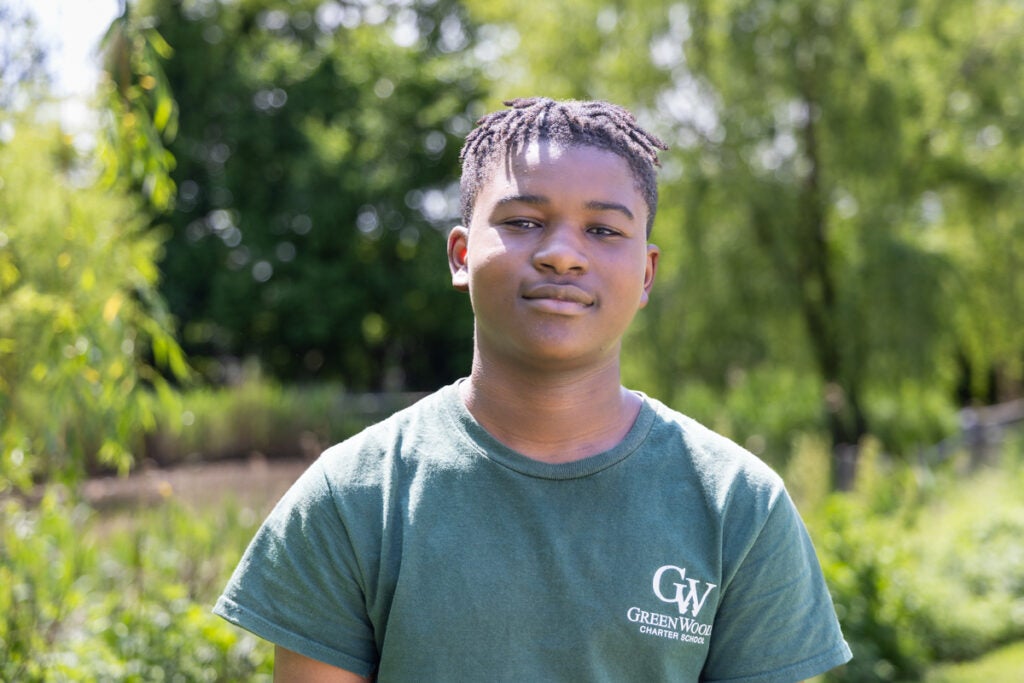
Students frequently take field trips to the nearby Wissahickon Creek to test water quality, said teacher Linda Wargo, who has lived in Roxborough for 23 years.
“The changes I’ve seen in terms of the amount of construction — I can talk about it in my classroom with the students who see apartment buildings going up all around them — and what that does for the wildlife, the habitats in the area,” Wargo said.
“We can talk about historical flooding in Philadelphia, and how it’s changed because of the impervious surface, and we don’t have enough green space to manage the water, and [how] the number of storms that we have every year is more severe.”
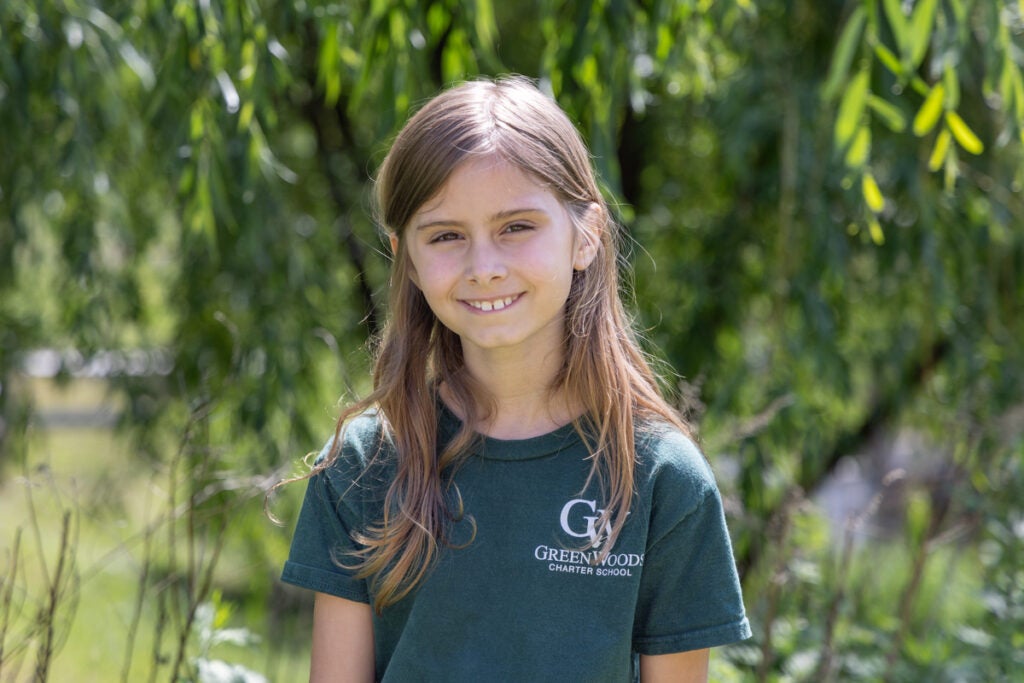
Principal Durso said she believes environmental education can make a significant impact on the community.
“When you talk about, ‘Oh, we used to have snow in Philadelphia in the winter, and we don’t really get a whole lot of snow anymore’ — that’s climate change,” she said. “And when an 8-year-old explains that to an adult, that adult is more likely to listen than if I explained it.”
Reading Senior High School in Berks County and Rowan Elementary School near Pittsburgh also received national green ribbons this year.

Saturdays just got more interesting.
WHYY is your source for fact-based, in-depth journalism and information. As a nonprofit organization, we rely on financial support from readers like you. Please give today.




